
What is a Medical Aesthetician? The Great Debate
Jen CopferShare
The term "medical aesthetician," also spelled "medical esthetician," has sparked a great deal of debate in the skincare community. Despite its widespread use, there's an ongoing disagreement within the aesthetic industry about whether this title is appropriate or even accurate.

What is a Medical Aesthetician?
The Great Debate
Medical aesthetician, medical esthetician, licensed esthetician, master esthetician. These are titles that are frequently used by skincare professionals.
However, in the US, only ‘licensed esthetician’ and ‘master esthetician’ (in a few states) are the titles listed on their official professional licenses. So, what do these additional titles mean, and why do they spark such a lively debate within the aesthetic community?
If you're confused about the differences between esthetician and medical aesthetician titles, you’re not the only one. It’s a topic that brings up a lot of questions and ongoing debate in the skincare world.
In this article, I’ll help clear up some of the confusion by breaking down what people mean when they say “medical aesthetician,” how that compares to other skincare roles, why the titles often overlap, the reasons behind the ongoing debate, and identifying potential solutions for finding common ground.
By the time you finish reading, I hope you’ll have a clearer understanding of the different roles in aesthetics and feel more confident forming your own opinion on this widely discussed topic.
To really understand both sides of the debate, I’ve spent years reading discussions in online forums and Facebook groups exclusive to skincare professionals. This has allowed me to directly witness arguments and discussions from both sides firsthand.
In the following sections, I will go over the most common arguments that usually come up in these conversations.
Quick Note:
I should point out that each US state has its own laws and regulations when it comes to esthetics and the scope of practice. Some states allow medical professionals to delegate any aesthetic treatment to estheticians, even if it's outside of their normal scope, and some states do not. Because of this, some of this information may not apply to every state.
What is a
Medical Aesthetician

A "medical aesthetician" is a self-designated term used by skincare specialists who generally work in medical settings, such as with dermatologists, plastic surgeons, or at medspas under the supervision of a medical director.
These skincare professionals usually focus on more advanced skincare procedures than a typical esthetician. They have the same training as estheticians, but they often take additional training in order to offer treatments like medical-grade chemical peels, cosmetic lasers, and microneedling, depending on the laws in the state they reside.
Licensed estheticians, on the other hand, tend to work in spas, salons, or boutiques, offering a range of services such as facials, extractions, waxing, and lighter chemical peels. Some may even offer eyelash extensions or make-up application. Medical aestheticians usually don’t provide these same type of services.
Keep in mind:
There is definitely some overlap between the duties of the two titles; I’m just providing generalized information to help you understand how they differ from one another.
The 'medical aesthetician' title is used by these specific skincare professionals to essentially describe a specialized niche of esthetics they offer, setting their services apart from typical esthetician services.
However, it’s important to note that “medical aesthetician” is not an actual licensed profession in the US, it is just a self-designated title, which is why the title is a major source of debate in the skincare community.
What about registered nurses who
work in the aesthetic industry?
Do they refer to themselves as
"medical aestheticians"?
Registered nurses who work in the aesthetic industry typically keep "nurse" or "registered nurse" within their title and most often refer to themselves as an aesthetic nurse or a cosmetic nurse, as some examples.
However, they share a similar predicament to the one discussed in this article, as aesthetic nurse and cosmetic nurse are not officially licensed titles. Their professional license identifies them as “registered nurses.”
That said, some nurses also take issue with the use of the word medical in esthetician titles. They feel the term implies a medical credential and should only be used by those who are licensed healthcare professionals, such as RNs, PAs, NPs, or MDs.
Medical Aesthetician:
Those Who Oppose The Term

The divide surrounding the term "medical aesthetician" often comes from other licensed estheticians and stems from the fact that it is not an officially licensed profession in the US. Skincare professionals who identify themselves as "medical aestheticians" usually hold an official licensed esthetician or master esthetician license, which means their license specifically states they are a "licensed esthetician" or a "master esthetician," and nothing more.
Some estheticians argue that the term is misleading, as it implies medical aestheticians hold a specialized medical license, possess a higher level of expertise, or consider themselves superior to regular estheticians, even though both groups have the same license. These estheticians believe skincare professionals should only use titles that accurately reflect their official license.
You can see the debate quickly pop up on any esthetic or skincare forum involving other skincare professionals, if someone asks a simple question like "how to become a medical esthetician?" You'll usually see responses like:
- "a medical esthetician isn't a real thing"
- "working in a medical setting doesn't make you a medical aesthetician"
- "there's no such title as medical esthetician"
- "the US doesn't issue medical aesthetician licenses"
- "your license says 'licensed esthetician', not 'medical esthetician'"
- "you're just an 'esthetician,' period!"
You get the idea.
These estheticians argue that those who use the other title are still only officially licensed as "licensed estheticians" regardless if they work in a medical setting or not, and therefore should accurately reflect the license they hold.
Medical Aesthetician:
Those Who Support The Term

On the other hand, skincare professionals who call themselves medical aestheticians argue that they aren't claiming to have a different license; it's just a helpful way to describe the specific niche of skincare they specialize in. They claim that even though it's not a separate license, it is, however, a different skillset for which they have to take additional training and certifications for the advanced treatments they offer.
They consider their specialty a subset of estheticians and compare it to estheticians who only offer waxing or eyelash extensions and call themselves a "wax specialist" or a "lash tech." In most states, these individuals are licensed estheticians, but since they choose to specialize and offer a particular service, they call themselves titles that specify the services they provide. Or for the states that require an esthetician license in order to work as a makeup artist, these individuals call themselves "makeup artists" and not licensed estheticians.
These skincare professionals point out that using their specialized title also helps direct clients to the right professional who offers the specific treatment they're looking for, since estheticians and medical aestheticians usually offer different services. Just like if someone was looking for eyelash extensions, they would seek out a lash tech. It makes it easy for clients to find the specific professional who provides the particular treatment they're seeking.
It's worth mentioning that the terms "medical aesthetician" or "medical esthetician" have also been accepted by the general population and job listing websites. If you look for these terms on popular job sites, like indeed.com for example, you'll find many results for positions specifically looking for this job title or preferring candidates with this type of experience or training.
Is It Legal to Use the Title “Medical Esthetician”?
Some States Say No

While the title “medical esthetician” has become increasingly common in spas, social media, and professional bios, it’s important to know that some states are beginning to crack down on its use. In several jurisdictions, referring to yourself as a medical esthetician, without holding a medical license, is considered misleading and, in some cases, illegal.
For example, these states have explicit regulations that prohibit estheticians from using the title “medical esthetician” in advertising, websites, or professional identification:
-
Minnesota (2105.0820)
-
New Mexico (16.034.0005)
-
Wyoming (General Provisions)
Each of these boards has made it clear that using “medical” in your title may imply that you are licensed to provide medical services, which estheticians are not legally allowed to do. This means that using the term without appropriate credentials (such as RN, NP, PA, or MD) can result in disciplinary action or legal consequences.
Even though, as of now, only a few states have specific laws banning the use of the title medical esthetician, that could always change. New laws and regulations are being implemented & presented all the time. If more boards begin to view the term as misleading, we may see additional restrictions put into place for other states.
That’s why it’s important to stay informed and check regularly with your state’s cosmetology or esthetics board for the most up-to-date guidance on their rules and regulations.
In states that haven’t legally addressed the title directly, things can get confusing and cause disagreement among professionals. Since there’s no universal rule or law on using “medical aesthetician,” this leaves a lot of professionals stuck in a gray area.
Until clearer laws are passed, or the industry agrees on some kind of standard, the debate probably isn’t going anywhere anytime soon.
Finding Common Ground

The "medical aesthetician" title has definitely stirred up some strong feelings on both sides of the argument. It’s not officially recognized by most state licensing boards, and in some states it’s even prohibited, but some professionals still choose to use it. They want to show that they specialize in specific treatments, which can help clients find the right person for the job.
For those estheticians against using the term, they feel the term is misleading and the licensed professionals should only use the terms that are reflected on their actual license.
So, how do we find common ground? Until more laws & regulations are passed that give more clarity on the issue, maybe it starts with recognizing that both licensed estheticians and those who refer to themselves as “medical aestheticians’ (due to specializing in a specific niche), offer valuable, but different, types of services in the skincare industry. They are not necessarily in competition with each other, making room for both specialties in the skincare community.
At the end of the day, the skincare industry is all about giving clients the best possible care and results. So let's concentrate on working together and having open conversations about what each professional and specialty brings to the table. That way, everyone wins: clients get the treatments they need and the industry keeps growing and improving.
Now that you've heard both sides of the debate, where do you stand on the issue?
Are you for or against using the title "medical aesthetician"?

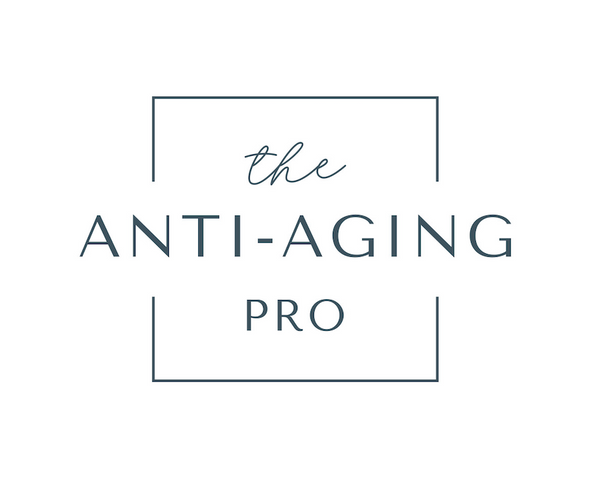
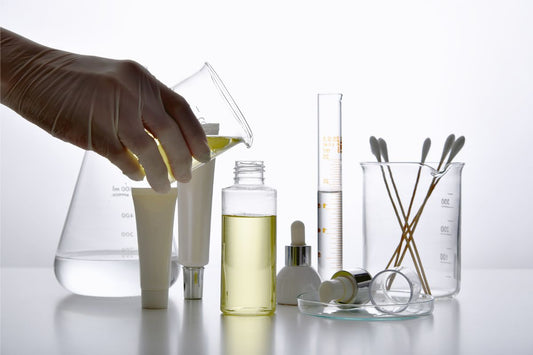


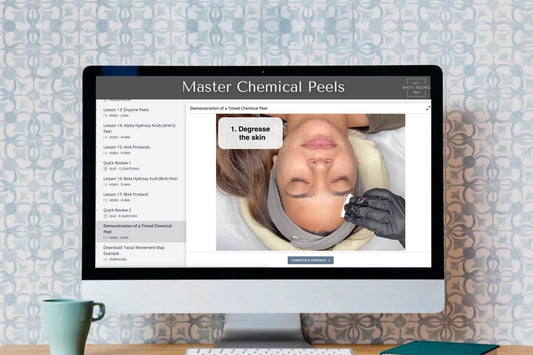
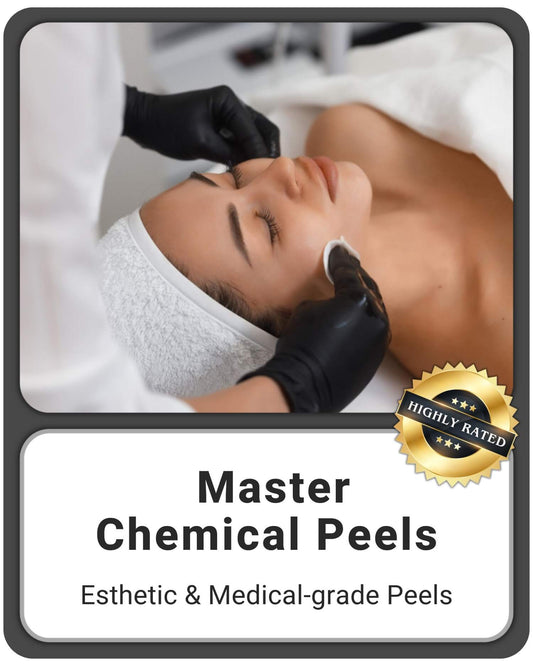
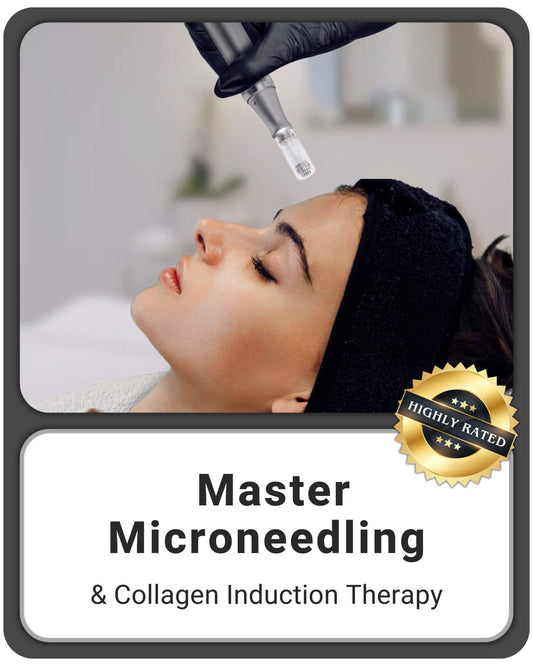
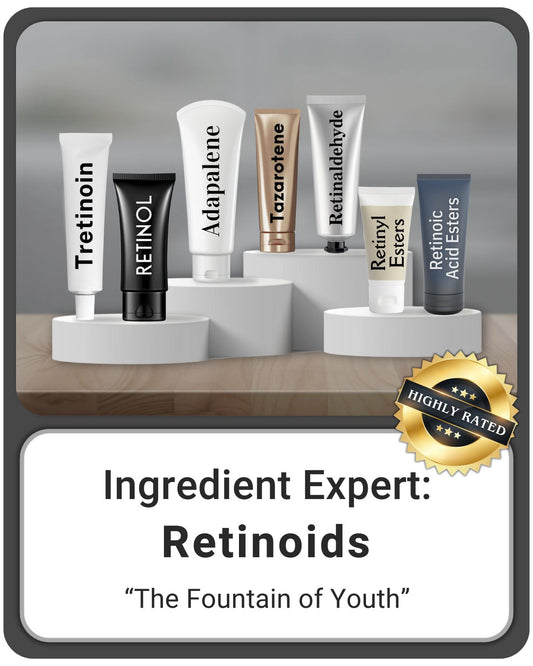

2 comments
Hello! I am a licensed cosmetologist in Arizona. I am wanting to expand my career and add MicroNeedling to my facial clients. Can I take your course with this license?
Thank you,
Michelle
I’m a seasoned registered nurse; graduating in 1995. I’ve been doing aesthetic injections since Botox came on the scene in 2002. I worked hard to earn a nursing license and pursue a career in the medical field of aesthetics. I personally do NOT think it is appropriate to use “medical” in your title, regardless of the type of esthetic skin treatments you provide, unless you have medical license with RN, PA, NP or MD behind your name. PERIOD!